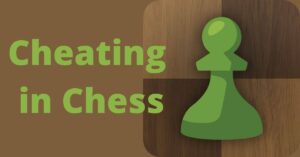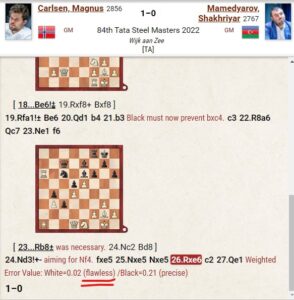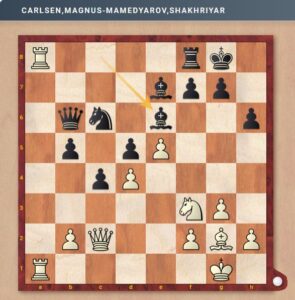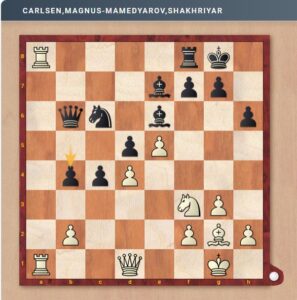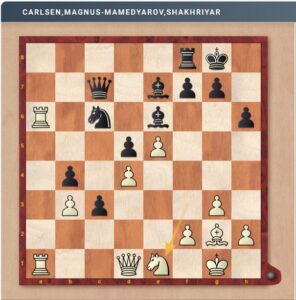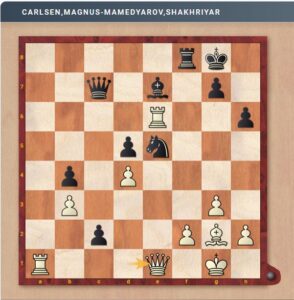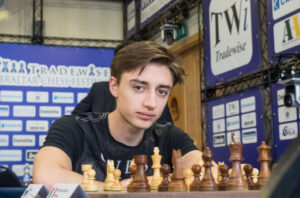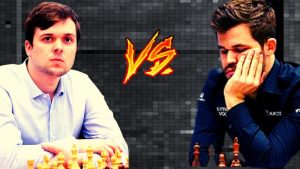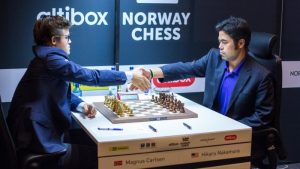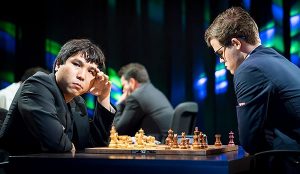The 2024 Chess Rapid and Blitz World Championship just wrapped up and boy oh boy did we have a lot of controversy in relation to good rules, or the lack thereof. It was quite an exciting event for a number of reasons, but dress-code problems and lack of tiebreakers resulted in some rather unfortunate incidents.
The problems largely stem, in my opinion, from the lack of good rules. If you have vague rules or rules that don’t take into account the reality of the world, you’re going to have problems, sooner or later. In this case; sooner.
Good Rules in Dress-Code
The first problem came from bad dress-code rules. The organization that runs the tournament, FIDE, has a rule against competitors wearing jeans. Well, sort of. Jeans are generally not allowed. I’ve went to a few clubs back in the old days where they had no jeans rules although they generally allowed dressy jeans.
In any case, apparently that’s what Magnus Carlsen, the defending champion in both Rapid and Blitz, thought. He showed up for the second day of the event wearing a nice pair of jeans. Not blue jeans. Dark colored jeans, well stitched, looking fairly nice. He played the first two rapid games with no issues. Then he was approached after the third game and told to change into slacks.
Carlson, who was already embroiled in several issues with FIDE, said there was only one round left in the day, that he’d make sure to wear slacks for the third day but that he didn’t want to rush back to the hotel, change, and then rush back to the game as any sort of delay might cause him to be late.
That wasn’t good enough for FIDE so they didn’t pair him for the fourth game. He then left in a huff and said he was done with the tournament.
To my mind, good rules are the solution here. Jeans are not allowed is a good rule. Jeans are not generally allowed is a bad rule. Show up wearing jeans and you don’t play in the first round. You don’t get told after you’ve already played three rounds that you can’t play in the fourth. What a mess.
Anyway, Carlson relented the next day and agreed to play in the Blitz portion of the event. This takes us to the next problem arising from a lack of good rules.
No Tiebreaks
Way back in 1984 the World Chess Championship between Anatoly Karpov and Gary Kasparov went on for over five months and resulted in serious health concerns for the players. This because the match went on until someone won six games. After that debacle the World Chess Championship was limited to 24 games with ties going to the defending champion.
Nobody really liked that format either so eventually events were decided either by mathematical tiebreaks or an Armageddon game in which the player with the white pieces has more time but if the game ends in a draw the player with black pieces wins. This is now the format for almost every tournament in the world.
Unfortunately, FIDE, decided there would be no tiebreaks in this tournament. Well, you guessed it. The players in the finals, Magnus Carlsen and Ian Nepomniachtchi ended up in a tie. It’s important to note they both played in the quarter-finals and semi-finals the same day as the finals. That’s a lot of exhausting chess for one day. Then they played four winner-take-all tiebreak games. Four more draws. Now the players were exhausted, the New Year celebration was on the horizon.
The two players decided they’d prefer to share the title than continue on in a match which would be won simply by sheer exhaustion rather than skill over the board. For now, FIDE allowed this compromise to stand although I suspect it will be reviewed.
Conclusion
The problem, of course, was the lack of good rules. Just have a tiebreaker. It’s not that hard to figure out. They do it in tennis now instead of having endless extra games. They do it in hockey with a shootout, during the regular season at least. They do it in futbol with shootouts.
With travel for players and fans, television obligations, venue issues, and other problems associated with the modern world, endless matches really just don’t work anymore and they certainly are not fair to the players.
Good rules, good games.
Tom Liberman

